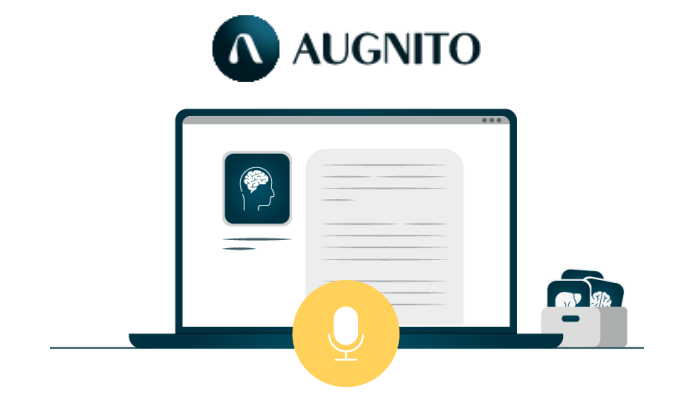
Voice recognition software nowadays is an indispensable tool in any medical practice. It can assist with medical transcription by simply enabling the dictation of reports that are part of the digital health records. This software provides financial benefits as it accurately and quickly converts speech into text, allowing specialists to do the reports themselves rather than depending on a transcriptionist. Voice recognition systems will help experts run their practice more smoothly and ameliorate each patient’s experience.
If you are interested in evolving to voice recognition software, there are several options in the market to consider. While doing so it is important to look at the pros and cons of each and opt for the one that will give you the most accurate outcome. This must be taken into consideration due to the extensive technical jargon that is used while formulating reports. Here are a few voice assistants that are available in the market:
Apple Siri
This software is programmed to adapt to each individual’s particular usage of language and search queries. Apple has different voice commands that were made to interact with Siri. The system responds to commands that can take pictures, schedule meetings, report the weather, or navigate traffic. Although for any professional medical use Siri has significant limitations.
Google Voice
It offers voice recognition that can be used for everything from generating emails to sending short texts. This particular system utilizes Chrome’s Web Speech API and has been integrated into Google Drive and Dropbox so you can easily move your transcribed texts to any online account of your choice. The main advantage of Google Voice is that it is free and works on many smartphones and android operating systems. The disadvantage involves requiring good Internet connectivity as voice recognition is carried out in the cloud. Also, you can only dictate for a maximum of about 20 seconds which greatly limits your ability to import lengthy paragraphs. Lastly, Google’s voice possesses no medical vocabulary. Thus, making it unviable for medical specialists who may need complex cardiology, gastroenterology, ophthalmology, and orthopedic vocabulary. Cloud-based systems aren’t ideal for a busy medical clinic either. Another disadvantage is that it’s a risky option for medical dictation because you are sending unencrypted private patient data to an overseas server.
Microsoft Speech
Microsoft has created a Windows component for voice recognition that includes navigating websites, email functions, shortcuts on the keyboard, and operating the mouse while not relying on the cloud for recognition or precision but operates using learned grammar, context, and speech samples. There is a personal dictionary for dictation that enables users to include their own words and expressions. The major benefit of this system is that it is free and built-in to most versions of Windows. As it is not cloud-oriented you do not need a great Internet connection and you aren’t sending any private patient data to an overseas server. Although, it is slower, much less accurate, and does not include complex medical vocabularies. This means it will probably take you a few years to teach complex medical terms after you learn how to build the vocabulary and can store it. Very few medical professionals master this capability.
Limitations of voice recognition software
1. Formatting Issues
Recorded notes to appear lucid and comprehensible, they need to be formatted with proper punctuation, paragraph breaks, bulleted lists, and so on. When using speech recognition software, physicians must either verbally command every piece of punctuation or edit as they type. Inserting punctuation and another formatting verbally negates the benefit of speaking aloud. The thought process can also get thrown off if the clinician decides to format with a keyboard while speaking aloud.
2. Extensive Training Time
Voice recognition software claims they can handle accents but the veracity of this claim depends on the software and the depth of accent. It can eventually be trained to adapt to accented speech but the process can take many hours that busy clinicians can’t afford. Even without a thick accent, each physician needs to spend some time with voice recognition software to train it for unique words or abbreviations.
3. Speech Recognition Lacks Accuracy
The problem with most voice recognition software is a myriad of errors. Most of those errors involve clinical information that could affect treatment decisions and outcomes for the patients. Insurance companies are always ready to pounce on any documentation errors, resulting in issues with reimbursement that delay payouts or deny reimbursement altogether. The numerous causes for complications that require correction with speech recognition software can be frustrating enough to drive physicians and administrators to search for a better option.
Speech to Text Medical Transcription vs. Voice Recognition Software
Medical transcription software has experienced rapid evolution that’s rendered voice recognition software obsolete. Hospitals are quickly transitioning to speech to text medical transcription as the benefits are clear and no drawbacks to speak of. It’s no longer necessary to use complicated software when newer affordable options can do the same job more precisely. By simply evolving there is a potential to reduce burnout that affects almost half of all physicians.
Speech to text medical transcription allows physicians to spend more time seeing patients and reduce physician burnout due to documentation tasks. So if you are looking to evolve the efficiency of your proactive, Augito is the way to go.
Why Augnito?
Augnito equips you with one of the most reliable speech-to-text medical transcription facilities. It has been created by a team of medical experts and data scientists who understand the unique challenges of the industry. But that’s not all the tool has been designed to identify accents from across India making it accurate irrespective of the speaker. Completing documents is now possible in minutes as Augnito is:
- Quick and precise
- It recognizes medical terminology accurately.
- Is mobile-friendly
Gage Poon is a medical engineer passionate about writing on technological trends for voice recognition software. He likes to share his knowledge, for the readers who are interested in exploring software tact’s and trends.

